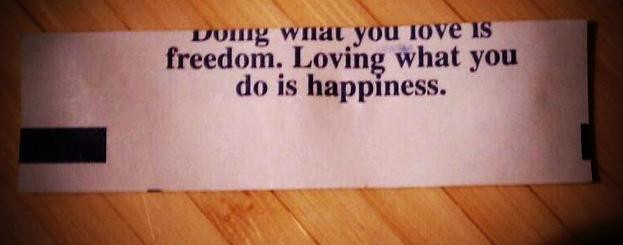The Privilege of Doing What You Love

The aphorism of “Do what you love” (DWYL) is the work mantra of our time, but the ability to pursue work out of love and not economic necessity is also a privilege. Here’s Miya Tokumitsu in Jacobin discussing why DWYL is problematic:
“Do what you love” disguises the fact that being able to choose a career primarily for personal reward is an unmerited privilege, a sign of that person’s socioeconomic class. Even if a self-employed graphic designer had parents who could pay for art school and cosign a lease for a slick Brooklyn apartment, she can self-righteously bestow DWYL as career advice to those covetous of her success.
If we believe that working as a Silicon Valley entrepreneur or a museum publicist or a think-tank acolyte is essential to being true to ourselves — in fact, to loving ourselves — what do we believe about the inner lives and hopes of those who clean hotel rooms and stock shelves at big-box stores? The answer is: nothing.
Yet arduous, low-wage work is what ever more Americans do and will be doing. According to the US Bureau of Labor Statistics, the two fastest-growing occupations projected until 2020 are “Personal Care Aide” and “Home Care Aide,” with average salaries of $19,640 per year and $20,560 per year in 2010, respectively. Elevating certain types of professions to something worthy of love necessarily denigrates the labor of those who do unglamorous work that keeps society functioning, especially the crucial work of caregivers.
My parents, toiling at their blue-collar working-class jobs, hammered in the idea that work was just work, a means to an end — they labored not for love, but to build a life they loved: a place where they could call home, a home where they could raise a family. As typical tiger parents, they encouraged me to pursue respected, well-paid careers like becoming a doctor. Being able to pursue a job other than for its remunerative rewards was a privilege. They were right, and I thank them for the privilege. [And thanks to Merin for the link.]
Photo: Amy Gahran
Support The Billfold
The Billfold continues to exist thanks to support from our readers. Help us continue to do our work by making a monthly pledge on Patreon or a one-time-only contribution through PayPal.
Comments